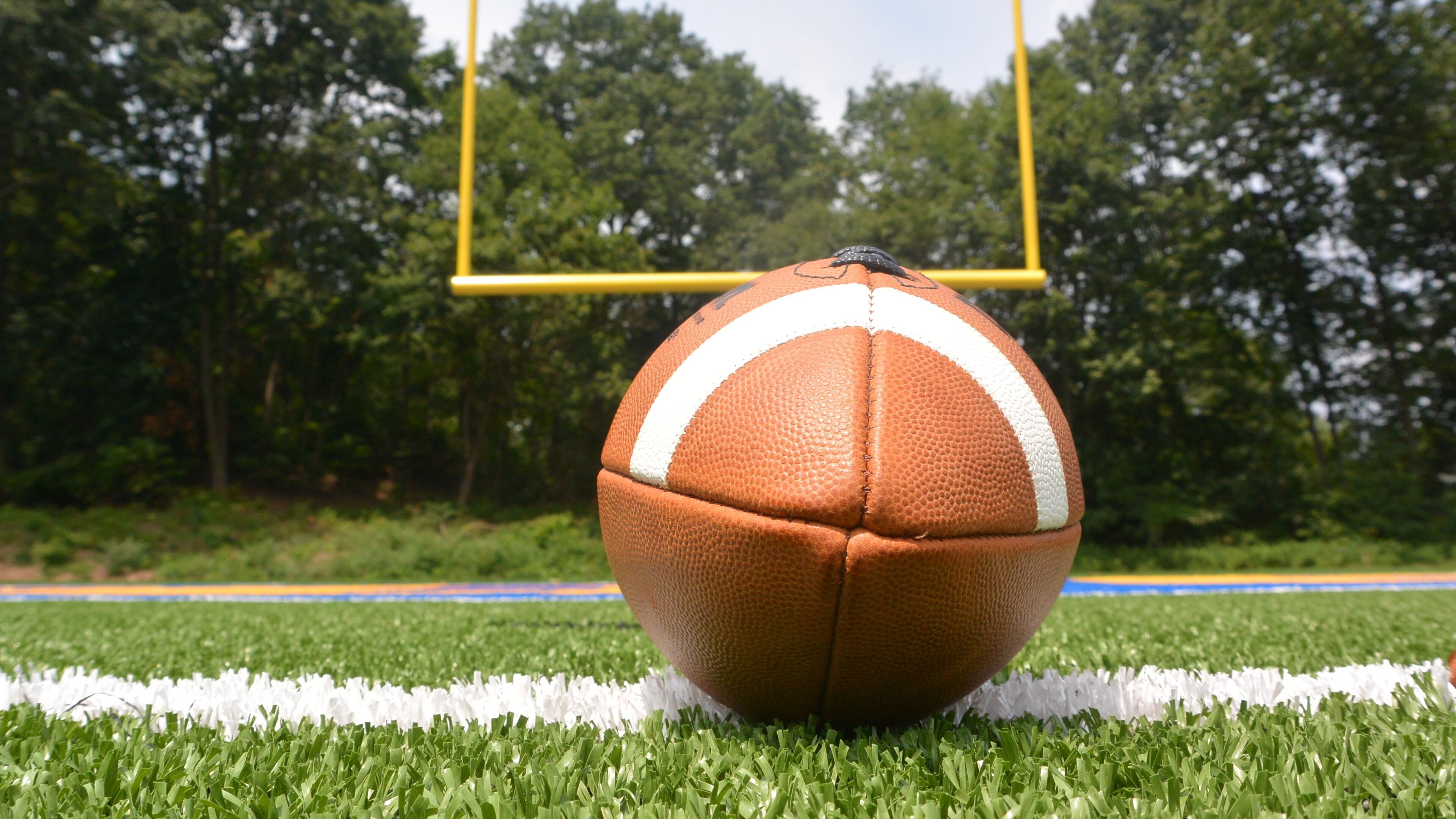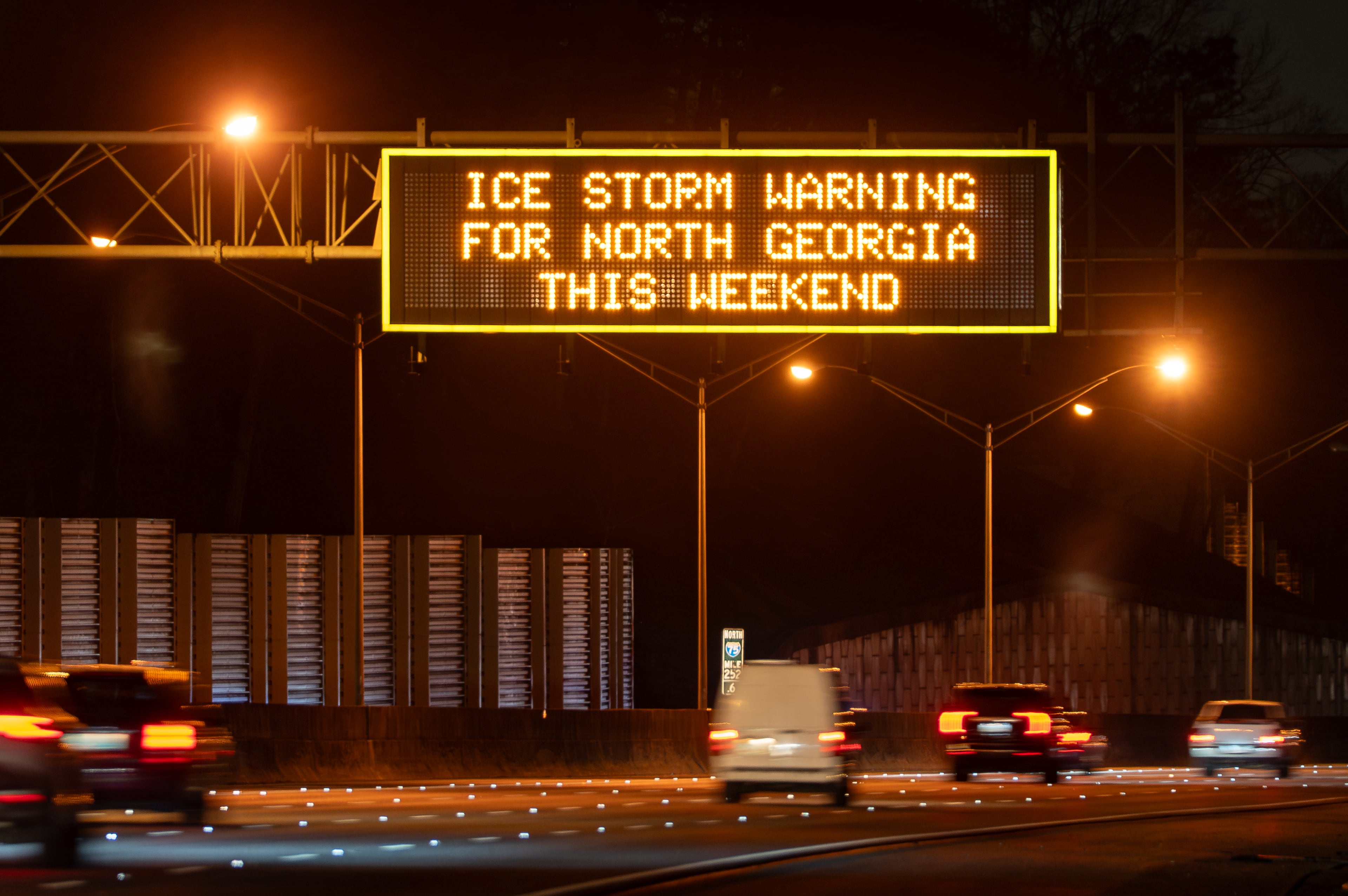National federation issues guidance on return to sports, calls football ‘higher risk’

The National Federation for High Schools on Tuesday released guidelines for resuming sports, advising its 51 member associations to prepare for seasons delayed or interrupted by COVID-19 and a new normal of social distancing.
The NFHS labeled football as “higher risk” for COVID-19 transmission and categorized game spectators as “non-essential” if states still have guidelines restricting mass gatherings, as Georgia currently does.
The report, called "Guidance for Opening Up High School Athletics and Activities," was produced by the NFHS Sports Medicine Advisory Committee. Its recommendations are influential but not mandatory for the Georgia High School Association and other members.
The NFHS guidance divided sports into categories of risk for spreading COVID-19.
Football, along with wrestling, boys lacrosse and competitive cheer, was judged as “higher risk,” which the NFHS defined as “sports that involve close, sustained contact between participants, lack of significant protective barriers, and high probability that respiratory particles will be transmitted between participants.”
The NFHS laid out a three-stage approach to a return to activities, which include preseason conditioning, using guidelines released by the White House last month. The recommendations address COVID-19 screening, face coverings, group sizes, showering and dressing, equipment sanitization and sharing of towels and clothes.
“Until a cure, vaccine or very effective treatment is readily available, or so-called ‘herd immunity’ is confidently reached, social distancing and other preventive measures such as face covering will be a ‘new normal’ if workouts, practices and contests are to continue,” the NHSF stated in its Points of Emphasis.
The NFHS also laid out various scenarios that each association must consider in an unpredictable return to games and contests.
“Due to the near certainty of recurrent outbreaks this coming fall and winter in some locales, state associations must be prepared for periodic school closures and the possibility of some teams having to isolate for two to three weeks while in-season,” the NFHS stated.
The NFHS didn't take an immediate position on handling a student athlete, coach or other team personnel who tests positive for COVID-19 after workouts or practices begin. Within a day of the March 11 revelation that NBA player Rudy Gobert had tested positive, the NBA, NHL, NCAA and major league baseball had shut down.
“Testing regimens, specific guidelines regarding mass gatherings, and response to a student or team member testing positive for COVID-19 (including contact tracing) are all currently under review and guidance will come from CDC and state and local health departments,” the NFHS stated.
The Centers for Disease Control and Prevention currently advises a two-week quarantine for anyone coming into contact with an infected person.
Other recommendations covered the contesting of games. The NFHS recommended grouping attendees to sports contests into three tiers — essential (athletes, coaches, officials, etc.), preferred (media) and non-essential (spectators, vendors).”Only Tier 1 and 2 personnel will be allowed to attend events until state/local health departments lift restrictions on mass gatherings,” the NFHS stated as a recommendation.
The NFHS guidance also noted the need for social distancing while traveling to contests. “Thus, multiple buses/vans and/or parental/guardian transportation will likely be needed.”
The GHSA put its spring sports on hold March 12, eventually canceling the remainder of their seasons.
GHSA executive director Robins Hines said last week that he was hoping Georgia could resume sports activities such as football conditioning and fall-sports tryouts in June.

